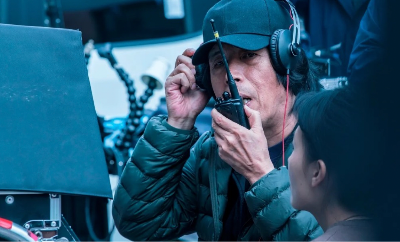Director Lee Chang-dong’s films are uniquely Korean, and throughout his career, his work has served as cultural beacons for the future of Korean cinema. “Peppermint Candy” (1999) put a spotlight on auteurism in South Korea, revealing an individual’s scars left by the tumultuous modern history of Korea’s democracy. “Oasis” (2002) sheds light on the social minorities of Korea and ventured where most would never dare to. His latest feature-length film, “Burning” (2018), questioned the reality and the anger innate in the Korean youth of the 21st century. Lee’s films, along with their metaphors and deep thematic resonance, have achieved a canonical status within South Korea’s film industry.
Originally a novelist, Lee has been a film director, a playwright, a screenwriter and the Minister of Culture and Tourism in South Korea. His films have enlightened and inspired numerous filmmakers in Korea and around the world.
Starting on April 5, the Metrograph will be hosting a retrospective on Lee’s cinematic career, screening an expansive collection of his works. The series will also include the U.S. premieres of new 4K restorations for his early films “Green Fish” (1997), “Peppermint Candy” and “Oasis.”
WSN sat down with director Lee Chang-dong to talk about the role of realism in projects, his influences and the changing structure of film as a larger medium.
This interview has been edited for length and clarity.
WSN: I believe your films show the mundane reality of Korean society that rarely gets depicted in other Korean films. How important is it to paint a realistic picture of Korea in your films?
Lee: My primary focus when creating films is narrowing the gap between the film and reality. The camera often beautifies our reality. A frame of a shot is like a frame of a painting. It creates composition, but it also separates it from the reality outside the frame. I wish to shatter the frame between the film and reality. I wish to capture what is real rather than what is artificial, whether it be the location or the props or the cast. The audience must feel ‘oh, that’s real,’ not man-made. They should not feel that the aspects of the film were put in place for an artificial reason. The camera shots, angle and the movement are largely determined based on this principle.
WSN: When you are writing a film, does the visual imagery come before or after the story?
Lee: ‘Peppermint Candy’ was made in 1999, just before the new millennium. While everyone was talking about what the future held, I wished to make a film about going back to the past. The idea came from a very small moment in my life. One day, I was looking at my middle-aged face in the bathroom mirror while shaving, and felt the desire to go back to my youth 20 years ago. Though it is impossible in reality, I felt that I could realize it through a film. Then, I had an image of a man standing in front of an oncoming train as if he was trying to stop it. I usually think of the narrative first, but some images come with the story itself. Those specific images are the power that takes the story to different places.
WSN: Were there any pressures or concerns you ran into in pre-production when dealing with sensitive themes in Korea?
Lee: Literature often portrays the uncomfortable reality, but it can be difficult in film — especially in commercial films. The audience seeks fantastical refuge when coming to the theater. They are bound to feel uncomfortable about films that depict reality and make them look back on the truth of life. Of course, I do worry about these aspects when developing a movie. I worry if the audience will be able to accept such a film and if it would interest the producers and the investors. But what I truly think about is whether the film I am making is a meaningful film worth making.
WSN: What world has influenced you and your style in your filmmaking career?
Lee: I have recently rewatched the works of director Luchino Visconti, such as ‘The Leopard’ (1963), ‘Senso’ (1954) and ‘Ossessione’ (1943). Great classics function as novel stimuli for your creativity. I have been influenced by various writers, artists and directors, and they have formed my works. Ideas come to me from the various stories of people around me, but it is the countless films and books that taught me how to feel and interpret these stories.
WSN: In an era when streaming services and short form content are on rise, is there anything you want to say to aspiring filmmakers who wish to study film?
Lee: From the pandemic and the rise of streaming services, the change in the landscape of media consumption is changing the habits and the perception of the audience. Now, the medium of film is at its crucial turning point. The audience believes that you don’t need to go to a theater to watch a film, and the younger audience is getting used to short form entertainment. But despite the change in the medium, the fact that doesn’t change is that we are storytellers. Aspiring filmmakers should seek the stories they want to tell.
Contact Tony Jaeyeong Jeong at [email protected].























































































































































